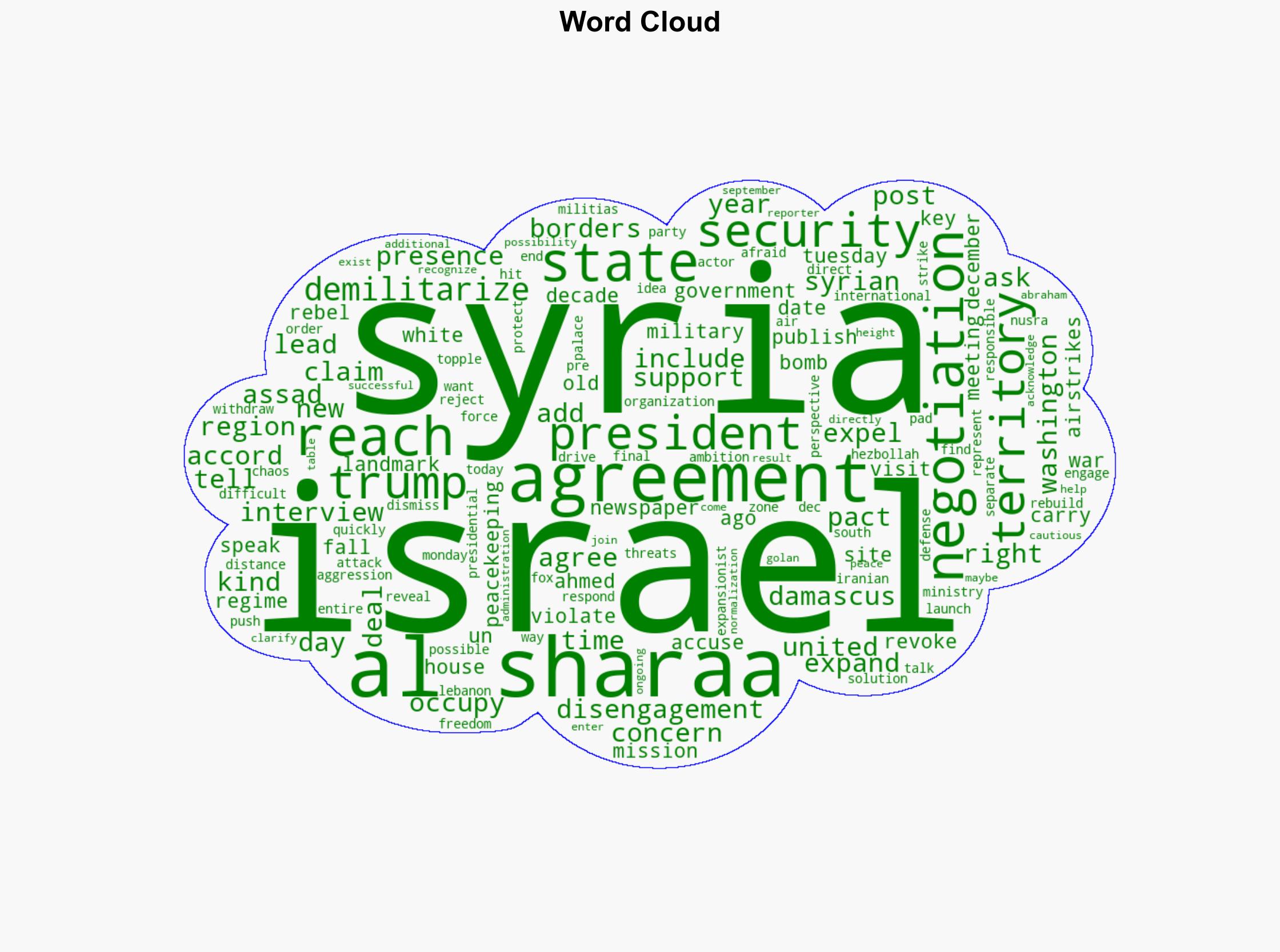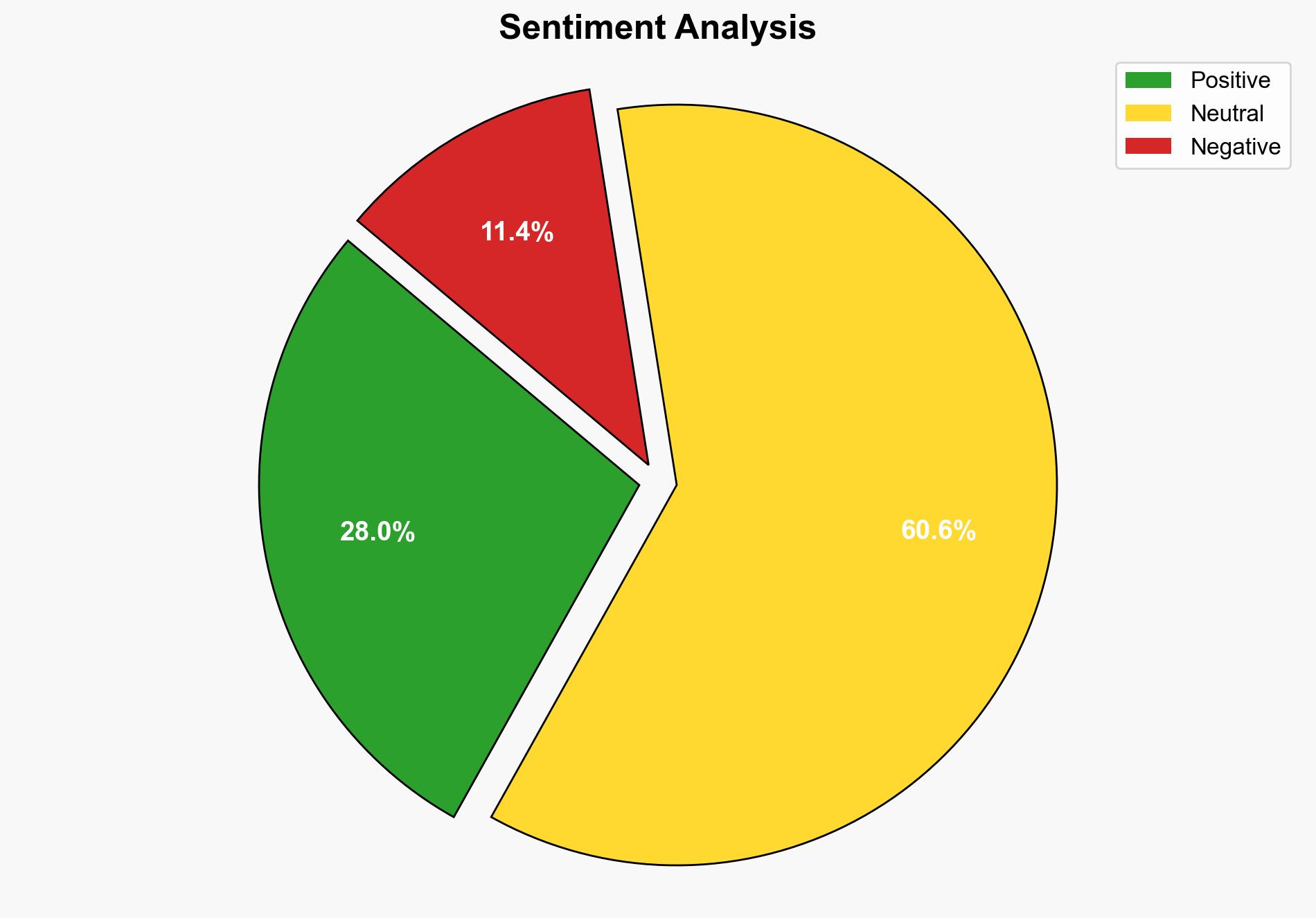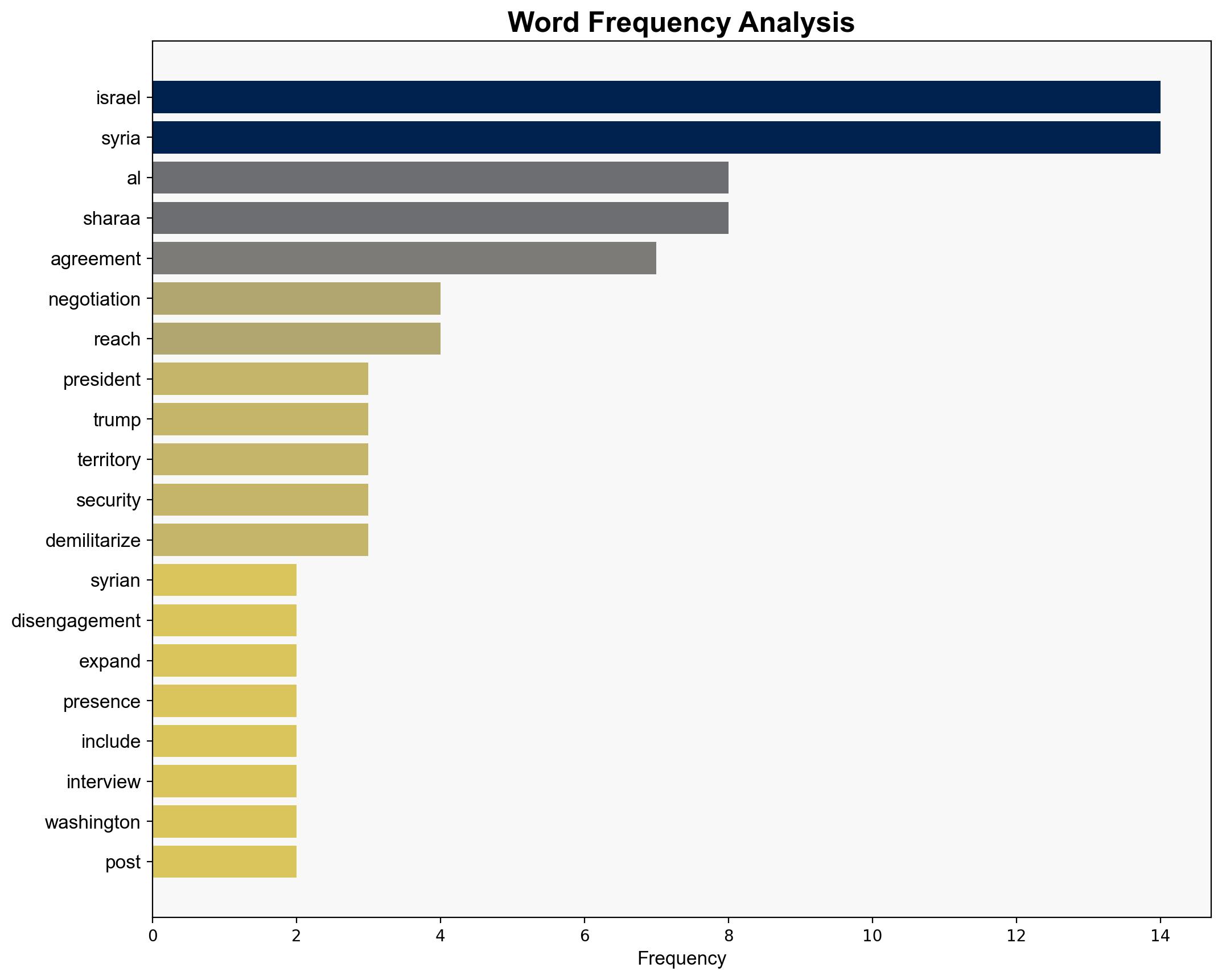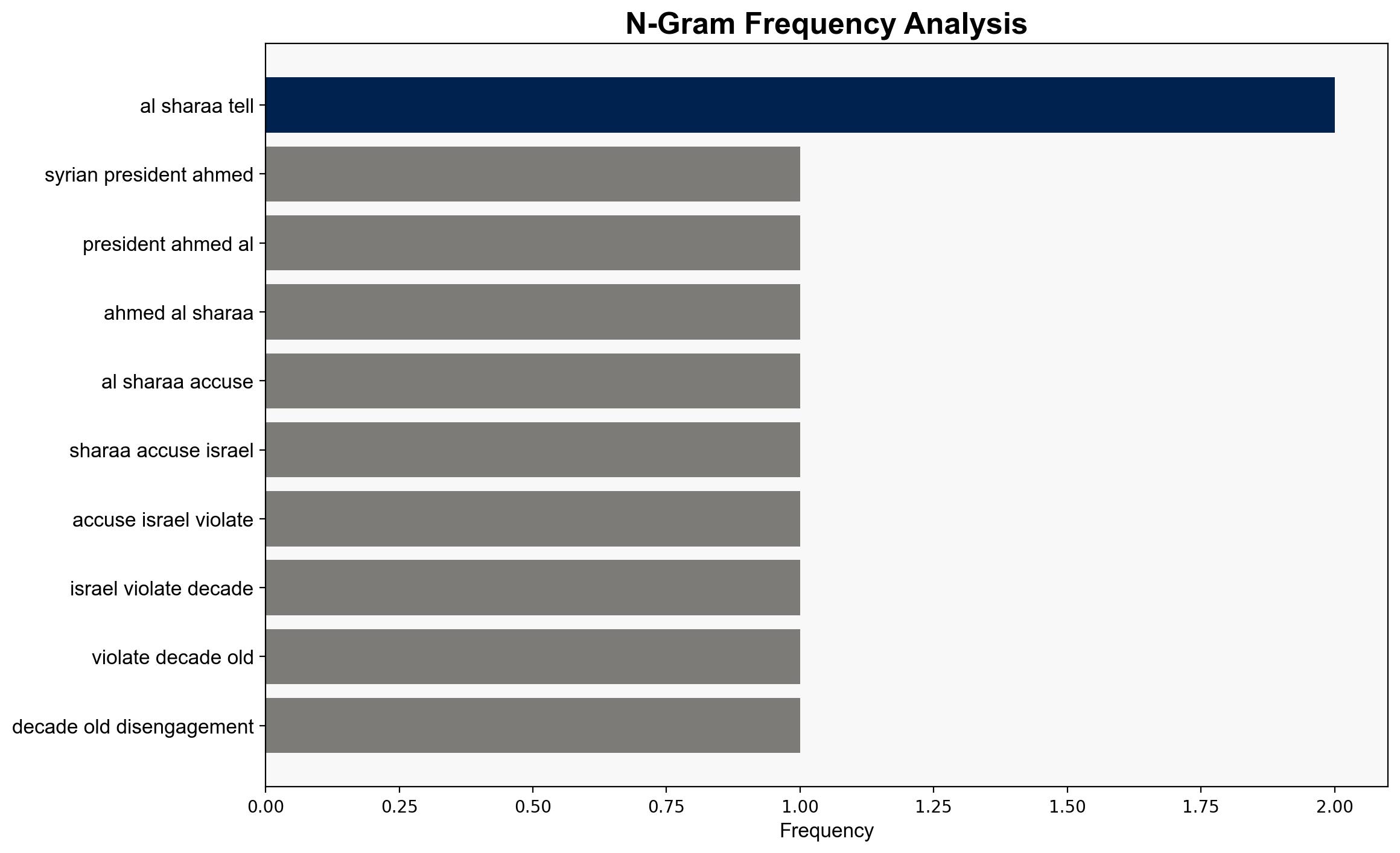Sharaa confirms Syria is in direct talks with Israel – Israelnationalnews.com
Published on: 2025-11-12
AI-powered OSINT brief from verified open sources. Automated NLP signal extraction with human verification. See our Methodology and Why WorldWideWatchers.
Intelligence Report: Sharaa confirms Syria is in direct talks with Israel – Israelnationalnews.com
1. BLUF (Bottom Line Up Front)
With a moderate confidence level, the most supported hypothesis is that Syria is engaging in direct talks with Israel primarily to secure regime stability and international legitimacy, leveraging U.S. support to negotiate favorable terms. Recommended action includes monitoring the negotiations closely and preparing contingency plans for regional stakeholders’ reactions.
2. Competing Hypotheses
Hypothesis 1: Syria is engaging in direct talks with Israel to stabilize the Assad regime by securing international legitimacy and reducing military threats, with the support of the United States.
Hypothesis 2: Syria’s direct talks with Israel are a strategic deception to buy time and consolidate internal power while projecting a willingness to negotiate, without genuine intent to reach a lasting agreement.
Hypothesis 1 is more likely given the current geopolitical context and Syria’s need for international support post-conflict. The involvement of the U.S. and the potential for a security pact suggest a genuine interest in negotiation.
3. Key Assumptions and Red Flags
Assumptions: Syria’s leadership is rational and prioritizes regime survival. The U.S. is genuinely interested in facilitating a peace agreement.
Red Flags: Potential deception by Syria to gain time. Israel’s skepticism about Syria’s intentions could derail talks. The complexity of regional alliances, particularly with Iran and Hezbollah, may complicate negotiations.
4. Implications and Strategic Risks
The direct talks could lead to a realignment of regional alliances, impacting Iran’s influence in Syria and Hezbollah’s operations. Failure of talks may escalate military tensions, leading to increased airstrikes and potential conflict spillover. Economically, successful negotiations could open Syria to reconstruction aid, while failure may prolong economic isolation.
5. Recommendations and Outlook
- Monitor the progress of negotiations and prepare diplomatic channels to support a peaceful resolution.
- Engage with regional allies to ensure a coordinated response to potential outcomes.
- Best-case scenario: Successful negotiations lead to a peace agreement, reducing regional tensions and opening economic opportunities.
- Worst-case scenario: Talks collapse, leading to increased military conflict and regional instability.
- Most-likely scenario: Protracted negotiations with intermittent progress, requiring sustained diplomatic engagement.
6. Key Individuals and Entities
Ahmed Al Sharaa, President of Syria; President Trump, United States.
7. Thematic Tags
Middle East, Syria-Israel Relations, U.S. Foreign Policy, Regional Stability
Structured Analytic Techniques Applied
- Causal Layered Analysis (CLA): Analyze events across surface happenings, systems, worldviews, and myths.
- Cross-Impact Simulation: Model ripple effects across neighboring states, conflicts, or economic dependencies.
- Scenario Generation: Explore divergent futures under varying assumptions to identify plausible paths.
Explore more:
Regional Focus Briefs ·
Daily Summary ·
Methodology





